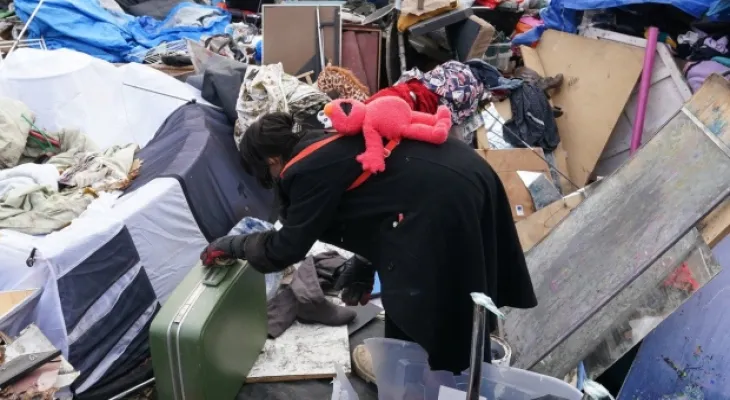Search here
Newspaper
Search here

Arab Canada News
News

Published: February 3, 2024
A study published on Friday in the BMC Infectious Diseases journal explained that homeless people have high rates of reinfection with COVID-19, exposing the health of already vulnerable populations to further risks.
The lead author, Lucy Richard, a senior research associate at the MAP Center for Urban Health Solutions at St. Michael's Hospital, said that homeless individuals in Toronto who had previously contracted COVID-19 were more than twice as likely to be reinfected compared to housed individuals.
Richard pointed out that the higher reinfection rates are likely due to increased exposure to the virus as the homeless are forced to stay in crowded shared spaces where infection spreads.
She added that they are also more susceptible than the general public to underlying health conditions that make them more vulnerable to illness.
The researchers followed 381 homeless individuals who had previously contracted COVID-19 for nearly a year, with the study period lasting from June 2021 to October 2022 — a timeframe that began when the Delta variant was dominant and ended when the more contagious Omicron variant took over.
They used polymerase chain reaction and rapid antigen tests to confirm reinfection cases among the homeless group and compared them with existing data on reinfection rates among the general population, finding that they were twice as high.
But the researchers went further and also took blood samples from study participants who were non-residents; this serological test discovered a greater number of COVID-19 cases compared to PCR and rapid antigen testing.
Richard said this result confirmed that PCR data undercounts the number of infections, indicating that more serological testing should be conducted on the general population to obtain a more accurate reading of reinfection spread in the era of Omicron and its subvariants.
Richard said, "Omicron appears and suddenly everyone gets reinfected (they) were already infected, and those who had not been infected got infected for the first time."
When blood test results were taken into account, the researchers found that about one-third of participants without homes had been reinfected with COVID-19 at least once.
Richard added that multiple infections may increase the risk of adverse health outcomes in the future, including long COVID disease.
Although more reinfection cases may also be detected among the general population if blood tests are used, Richard and other experts not involved in the study agree that the risk of reinfection for homeless individuals will remain disproportionately higher.
Dr. Andrew Bousari, a primary care physician and executive director of the Gattuso Centre for Social Medicine at the University Health Network in Toronto, said, "We see some of these trends clinically and... from a patient care perspective."
"You can do all you can to avoid coronavirus," said Bousari, who did not participate in the study, "but if you are in a shelter where you are crowded with many more people, the air quality or conditions differ."
He said, "This (research) aligns with previous studies that showed death rates are five times higher for unhoused people during COVID waves compared to the general population."
Dr. Brian Conway, president and medical director of the Vancouver Infectious Diseases Centre, said that although the study was conducted in Toronto, the findings also apply to other cities.
Conway, who also did not participate in the study, said, "This is a warning that we need to pay attention to our downtowns, especially the homeless."
"(In Vancouver), we have more homeless people, more people living in shelters and in our downtown, and housed people are very inadequately housed in substandard accommodations."
Conway and Bousari shared Richard’s concern that rising COVID reinfection rates will increase the risk of long COVID among homeless individuals.
Bousari said, "When you look at the likelihood of reinfection and then the higher likelihood of long COVID, you just exacerbate the disparities among people who have survived homelessness."
"We know there is already a higher rate of chronic conditions and chronic diseases faced by unhoused people," he said. "And then when you add to this extremely destructive long COVID syndrome... it is devastating."
Conway emphasized the importance of giving homeless people easy access to the latest XBB vaccine targeting the COVID-19 subvariant to help reduce reinfection — and it is also essential to address the housing issue.
"It is not us and them, it is us and us. And these people are us, and clearly live under conditions that repeatedly lead them to catch coronavirus, and we owe them an effort to change those conditions."
Comments